WordPress and ExpressionEngine are both Content Management Systems (CMS). That means they’re software designed to help you publish and display blog posts, products, events, and almost any other type of online content you can imagine. However, every CMS approaches content creation differently, and offers a unique set of built-in features.
Comparing WordPress vs ExpressionEngine requires us to take a look at how each platform tackles content publication, page customization, security, ecommerce, and more. In this article, we’ll look at how both software options fare in these aspects, so you can make the right choice for your site!
WordPress vs ExpressionEngine: Who are They For?
Your choice of CMS will largely determine what types of websites you can build. That’s because a lot of CMSs work particularly well with specific types of content. WordPress, for example, got its start as a blogging CMS.
Since its inception, however, it’s transformed into software capable of helping you create almost any type of website. That’s not an exaggeration, as WordPress powers over 43% of the web.
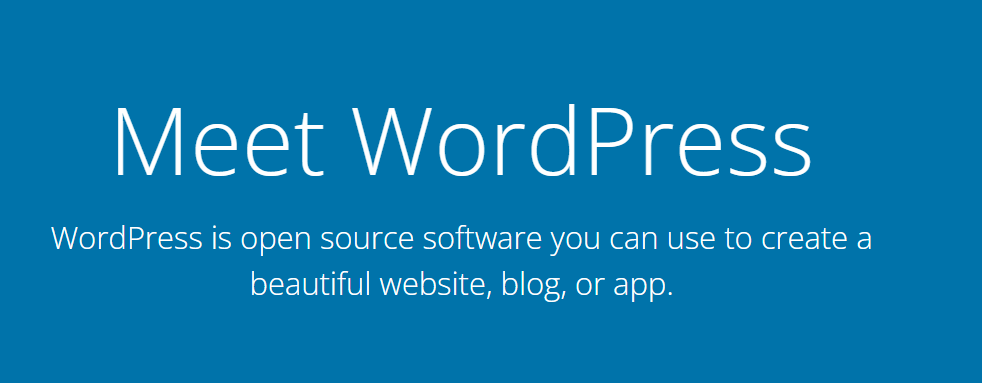
WordPress is the kind of CMS you use if you want a flexible software option. It can help you build websites visually thanks to the Block Editor. It also offers a user-friendly interface to manage your websites, and plenty of free customization options.
ExpressionEngine is equally as flexible as WordPress, but it’s less beginner-friendly. With ExpressionEngine, you get access to several features that WordPress doesn’t support by default. These include versioning, translation functionality, template caching, a built-in file manager, and more.

Arguably, you can tackle the same kinds of projects using either WordPress or ExpressionEngine. The main difference is that WordPress has an easier learning curve and doesn’t require any development experience, even when you’re building relatively complex projects.
WordPress vs ExpressionEngine: Ease of Use and Publishing
One of the most important criteria to keep in mind when choosing a CMS is its learning curve. Every piece of software has a different learning curve, and CMSs are no exception. Here’s how WordPress compares against ExpressionEngine when it comes to ease of use.
WordPress
One of WordPress’ main selling points is that you can use it even if you don’t know how to code and it’s your first time launching a website. That simplicity is baked into most aspects of the CMS, including the WordPress dashboard.
From the first time you log into WordPress, you get access to all of the platform’s built-in tools right from the dashboard. Everything is clearly labeled so you can jump from page to page, seeing what each setting does:
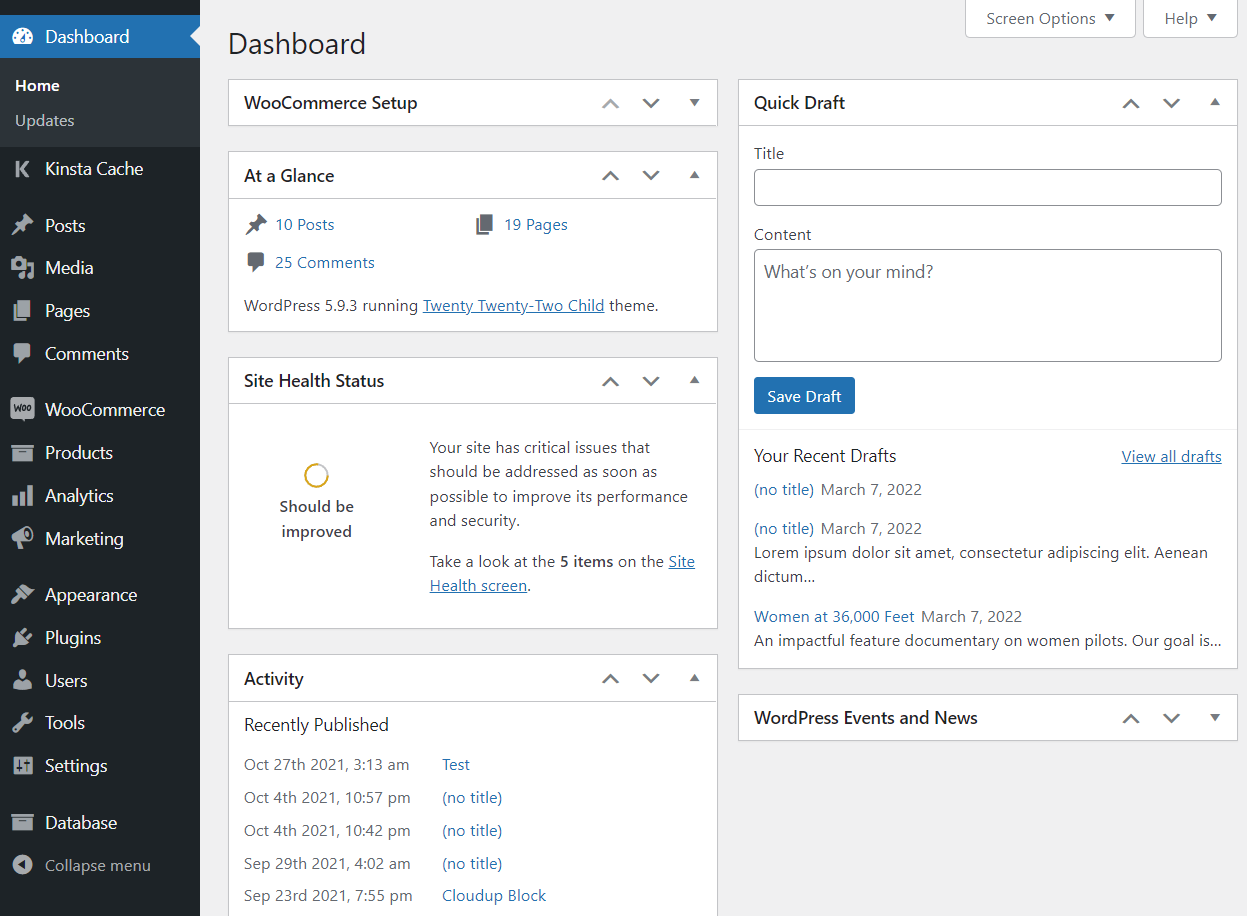
If you’ve used other CMS’ before, you’ll have an easy time figuring out which tab leads to what settings and options. For new users, you can find articles and videos on how to do just about anything you can imagine using WordPress. That applies to processes as simple as accessing the Block Editor to building full-fledged online stores.
When you’re ready to start creating pages, you can navigate to Pages > Add New to check out how the Block Editor works. Throughout the years, WordPress has shifted to a more visual post- and page-building experience. The editor provides you with access to “blocks,” which are pre-built modules that you can add to your pages and customize and re-arrange in any way you see fit:
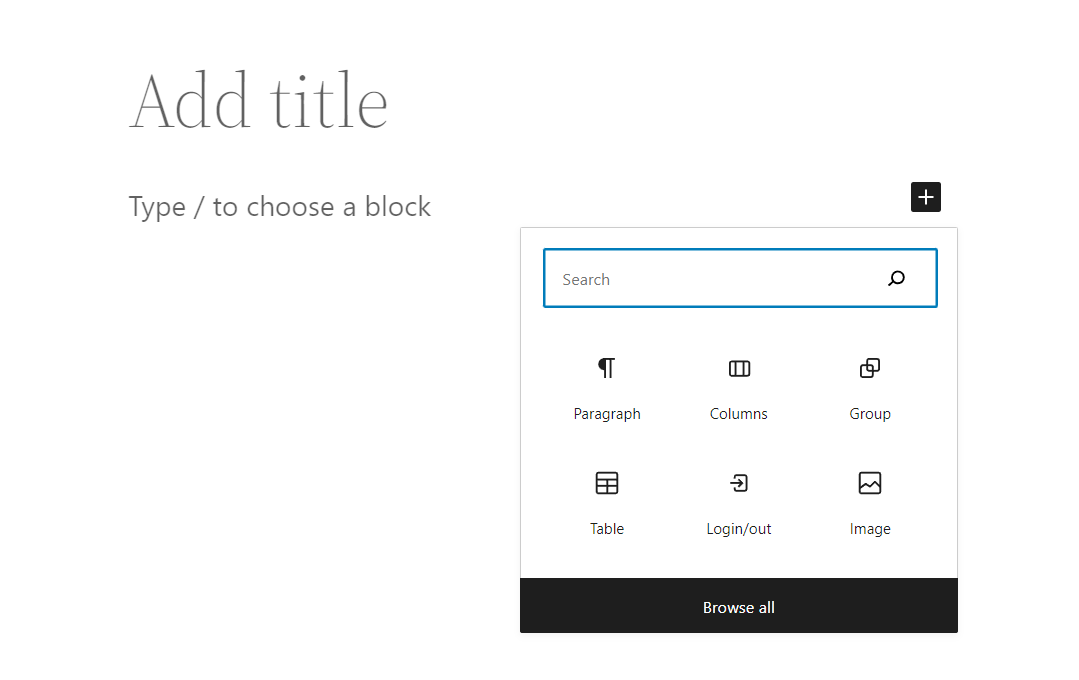
The Block Editor is at the core of the WordPress experience. While you’ll tweak settings through the dashboard, the Block Editor is what will enable you to build every page and post on your website. If you’ve ever used site builders such as Squarespace or WiX, you should feel right at home using the Block Editor.
ExpressionEngine
ExpressionEngine also enables you to manage your website through a dashboard that incorporates all of the CMS’ tools and features. With the ExpressionEngine dashboard, it’s easier to find individual configuration options, because they’re all laid out in a single menu instead of hidden within tabs:
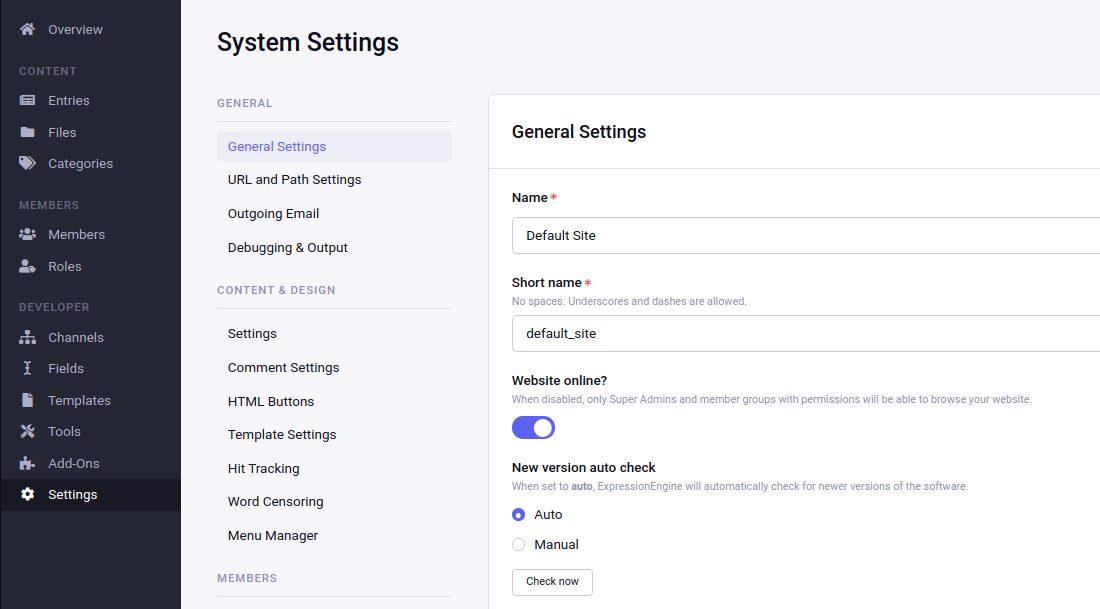
ExpressionEngine also separates its settings into general and “developer” options. The Developer menu enables you to carry out tasks such as adding custom post types, creating custom fields, and installing add-ons. Despite being labeled as developer settings, ExpressionEngine makes it easy to carry out all of these tasks, even for new users.
When compared with WordPress, it’s harder to find relevant documentation and ExpressionEngine tutorials. You can find instructions for how to carry out most tasks, but it’s hard to compete with the sheer breadth of supporting content that’s available for WordPress users.
Creating content in ExpressionEngine is fairly straightforward, but it’s not a visual experience. The ExpressionEngine editor doesn’t include any formatting tools or other features to help you add different types of text:
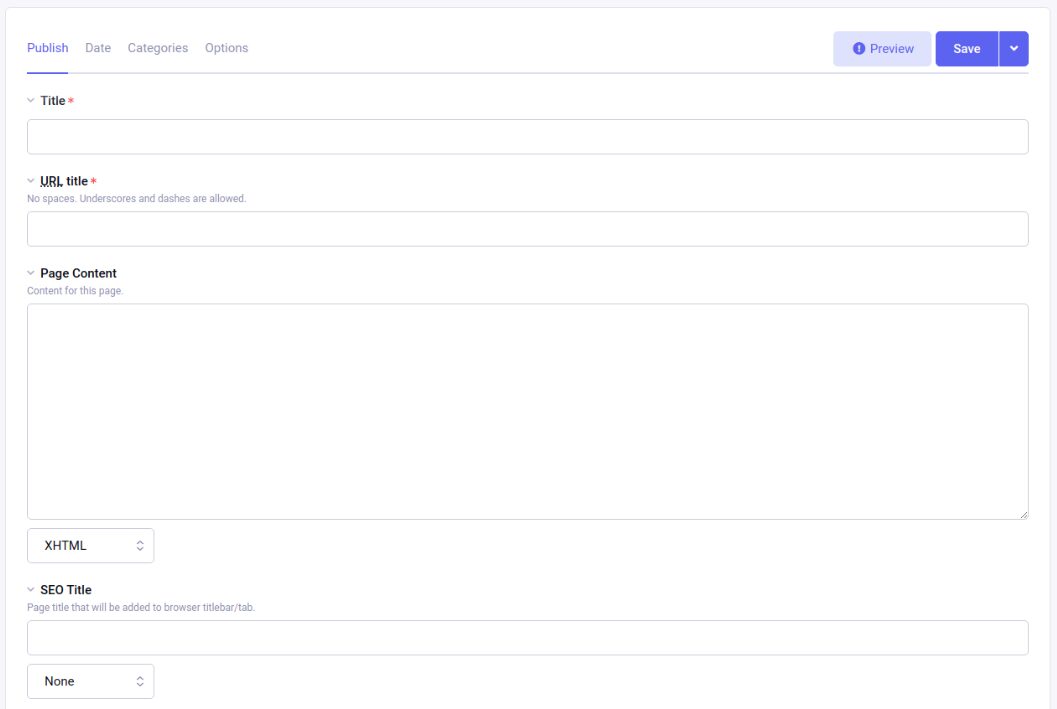
With ExpressionEngine, the components that enable you to publish content are not integrated with styling functionality. To change how pages, posts, and other types of content look, you need to build templates.
Creating templates in ExpressionEngine does require you to be at least passably comfortable with coding. ExpressionEngine supports HTML and CSS, JavaScript, PHP, and other languages. Plus, you get to use ExpressionEngine “tags” for adding pre-formatted sections to page templates.
If you use ExpressionEngine Pro, you get access to front-end editing tools. That makes it much easier to update your website, but it does mean paying for a recurring software license.
WordPress vs ExpressionEngine: Customization and Add-ons
Add-ons and plugins are at the core of most CMSs. The add-ons you get access to will largely determine what features you can add to your websites. Let’s talk about what customization options WordPress and ExpressionEngine have to offer.
WordPress
The primary way you can customize how WordPress works is by using plugins. The WordPress community offers a broad collection of plugins that you can use to add new features to the CMS:
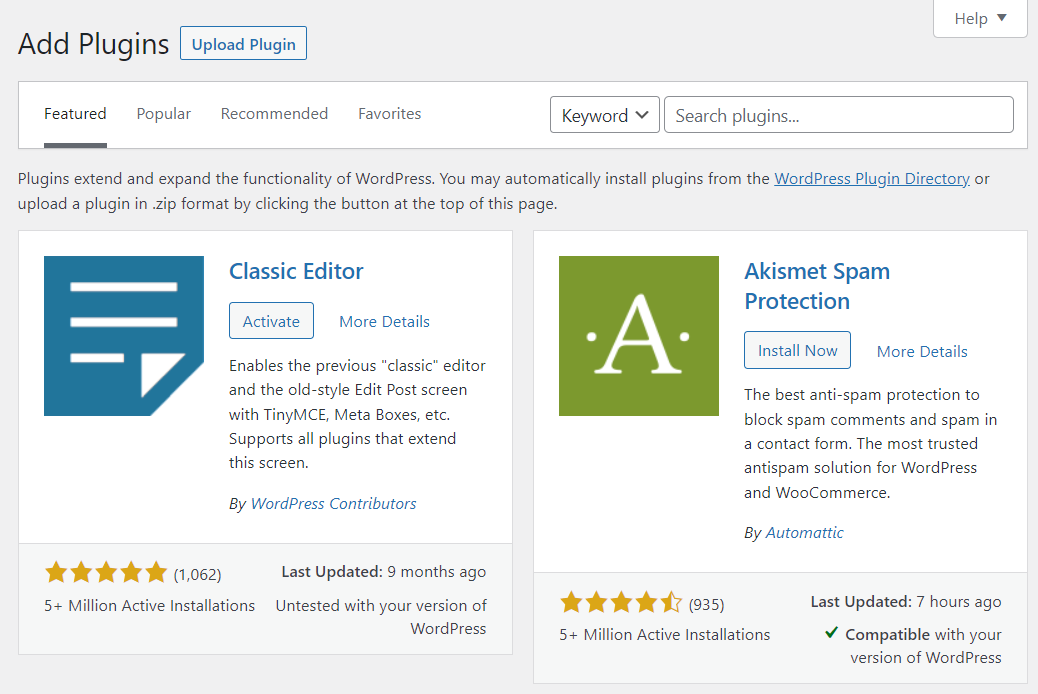
There are both free and premium plugins available, and you can use them to add almost any feature you can imagine to your site. Plus, installing plugins in WordPress is a simple process. You can read reviews and see ratings for each plugin, and install them without even leaving your dashboard.
To give you an example of how much plugins can change the way WordPress works, consider page builders. These solutions, such as our own Divi, enable you to bypass the Block Editor and build pages and posts with an entirely different set of tools.
Other plugins, like WooCommerce, add eCommerce functionality to WordPress. With WooCommerce, you can publish and manage products, conduct sales, process payments, and more. All of that is made possible by installing a single free plugin:
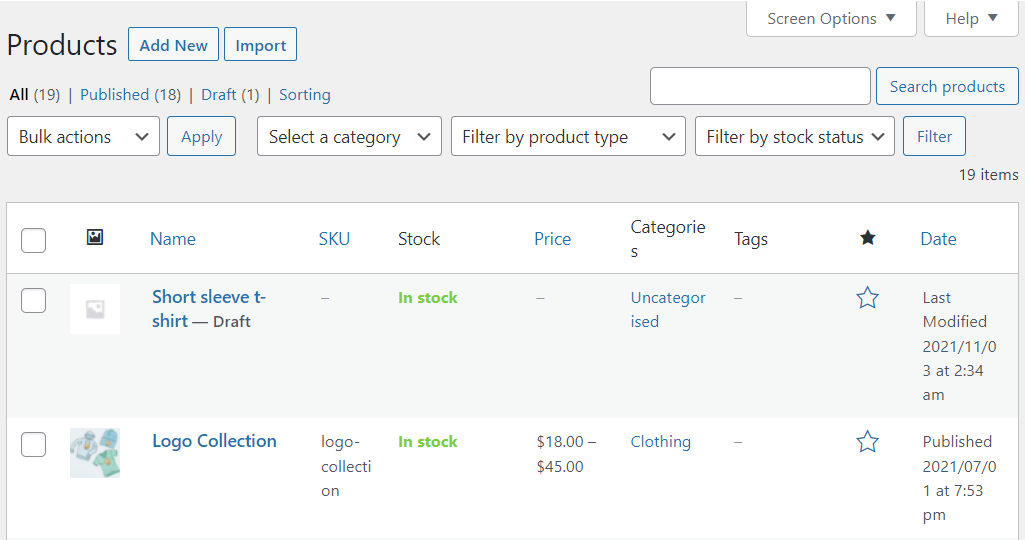
The sheer number of plugins available for WordPress makes it one of the most customizable CMSs you can use. It’s also worth noting that WordPress is open-source software. That means you can dig into the code and change any aspect of how the CMS works if you’re up for the challenge.
ExpressionEngine
ExpressionEngine offers a decent range of add-ons that you can use to expand the CMS’ functionality. Most of these focus on adding new, targeted features to ExpressionEngine, instead of changing how the CMS works at a core level (like some WordPress plugins do).
In terms of numbers, there are close to a hundred ExpressionEngine add-ons available. Among these, you’ll find both free and premium options:
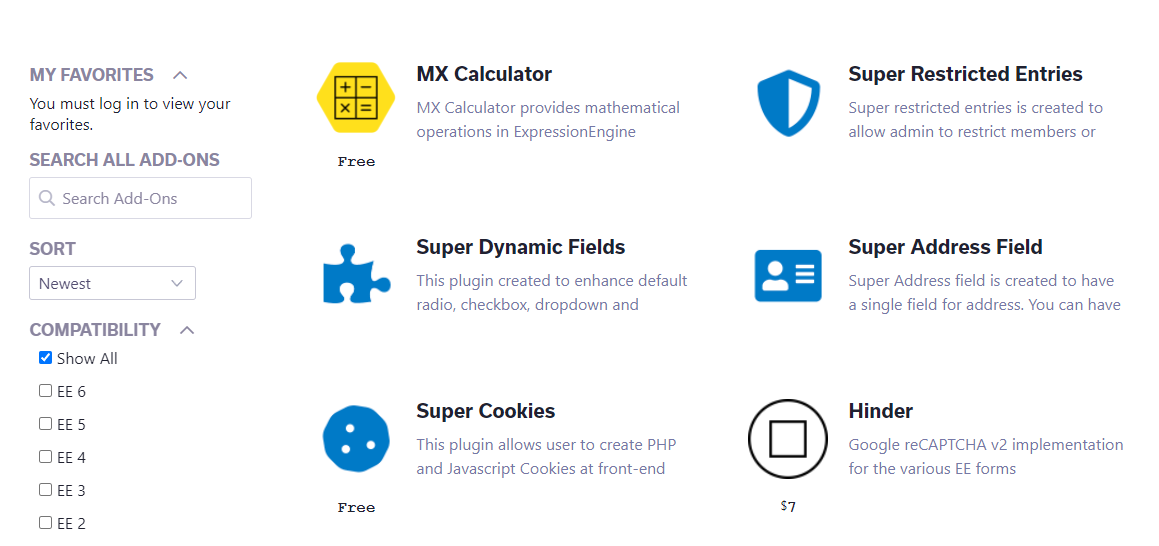
To install add-ons, you need to download the files from the ExpressionEngine repository and then upload them to a specific directory within your site’s installation. Afterward, the add-ons will appear in the ExpressionEngine dashboard, where you can activate them.
It’s worth noting that some popular features that require plugins in WordPress are available in ExpressionEngine without the need to use add-ons. Those features include:
- Support for multilingual websites
- The ability to create custom post types and fields
- Access to a built-in file manager
- Built-in Search Engine Optimization (SEO) tools
Overall, ExpressionEngine offers a more comprehensive set of features out of the box. However, it’s outclassed by WordPress when it comes to how much you can customize your website using plugins. Still, if you’re comfortable editing the ExpressionEngine code, you can edit it in any way you see fit.
WordPress vs Expression Engine: Themes and Templates
Being able to use themes and templates is one of the best parts of using a modern CMS. Simply installing a theme can make your website look entirely different. So naturally, the selection of themes a CMS offers plays a huge role in how popular it becomes.
WordPress
Just as with plugins, the WordPress community provides a vast number of themes to choose from. The WordPress.org theme repository alone gives you access to over 4,800 free options:

It’s worth noting that a lot of WordPress themes add features that aren’t just stylistic. Some of the most popular premium themes on the market come with their own fully-featured page builders (such as Divi). Others add custom post types to your website, or give you access to new blocks.
Depending on what type of theme you use, you might also be able to use Full-Site Editing to modify its templates using the Block Editor. That means you get full control over each template within a theme, all without touching a line of code.
ExpressionEngine
With ExpressionEngine, you don’t get access to a library of pre-built templates. Instead, ExpressionEngine comes with a robust template system that you can use to customize how every page type on your website looks. This system enables you to build templates from scratch using HTML, CSS, JavaScript, PHP, and more. You also get to take advantage of pre-built ExpressionEngine tags:
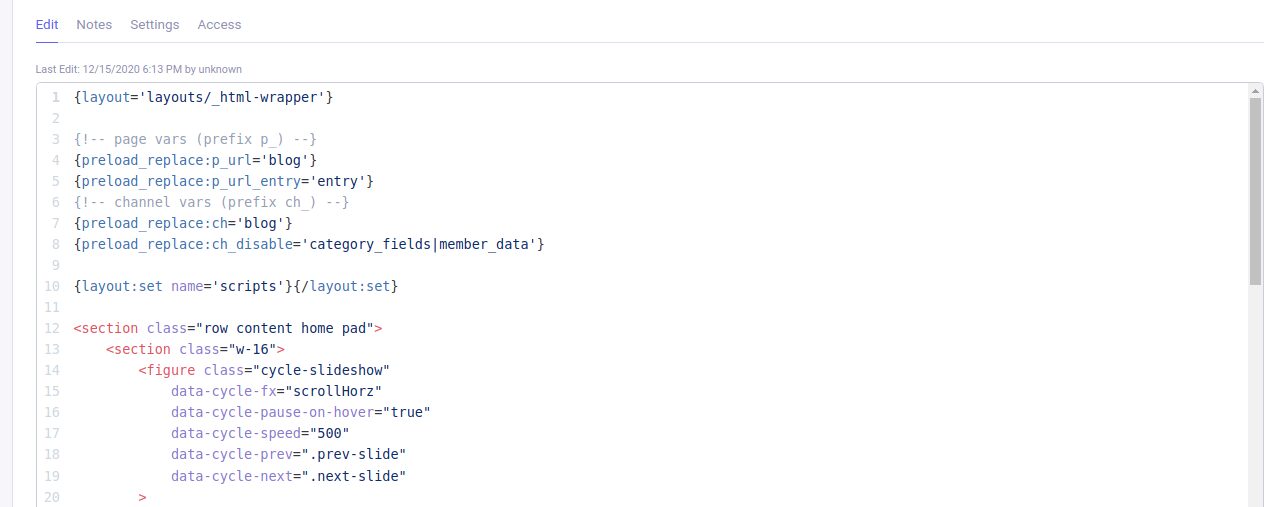
There’s no way around the fact that creating templates in ExpressionEngine requires you to be comfortable with web development basics. However, you do get complete control over how each page on your site appears.
WordPress vs ExpressionEngine: Security
Security is an essential aspect of running a modern website. Without proper security measures, your website remains open to attacks that can compromise its data or even take it down entirely.
WordPress
WordPress is under constant development, and that involves regular patches for fixing security issues. By default, the CMS is safe for regular use if you make a point out of keeping WordPress and all of its components up to date. Using old versions of plugins or WordPress itself will inevitably leave your website more vulnerable.
Aside from that, how safe your WordPress website is will largely depend on what steps you take to secure it and what web host you use. Some managed web hosts offer built-in security features such as IP whitelisting, automatic SSL certificate setup, and more.
One thing WordPress is lacking is advanced security features, such as activity logs, Two-Factor Authentication (2FA), captcha support, and more. You can add all of those features using plugins, but that requires you to have some knowledge of basic security measures.
ExpressionEngine
Just as with WordPress, securing an ExpressionEngine website requires you to keep the CMS and its add-ons up to date. Outdated components can lead to vulnerabilities that attackers can exploit, and that’s something your web host might not be able to help you with.
One of the pros of using ExpressionEngine is that the CMS includes several built-in features to increase website security. Among those features, you have:
- Logs that monitor who accesses the control panel
- A built-in captcha system for logins
- The ability to temporarily block IPs if they make too many attempts to log in
A more secure login page makes it harder for attackers to gain access to your website. ExpressionEngine doesn’t offer as many security add-ons as WordPress does, but its login page is more secure from the get-go.
WordPress vs ExpressionEngine: Ecommerce
If you want to start an online shop, both ExpressionEngine and WordPress offer you the necessary tools to do it. However, to get there, you might need to use some extensions or add-ons.
WordPress
WordPress doesn’t offer ecommerce functionality within its core features. However, there are plenty of plugins that enable you to start selling products online using this CMS. The most popular option is WooCommerce, which enables you to sell both physical and digital products:

WooCommerce is such a popular plugin that there are hundreds of add-ons designed to work with it. With WooCommerce extensions, you can add support for almost all major payment gateways, customize how your store works, and change what type of products you can sell.
There are plenty of other ecommerce plugins that you can use with WordPress besides WooCommerce. Popular options include Easy Digital Downloads and Ecwid Ecommerce Shopping Cart. Overall, if you’re using WordPress, you can use plugins to launch any type of online store that you want.
ExpressionEngine
As with WordPress, ExpressionEngine doesn’t ship with ecommerce functionality. However, the CMS does enable you to create custom post types to show off product catalogs. To sell those products, you’ll need to use add-ons.
There are several ExpressionEngine ecommerce add-ons to choose from. However, all of the best options are premium, some of which cost hundreds of dollars to license:
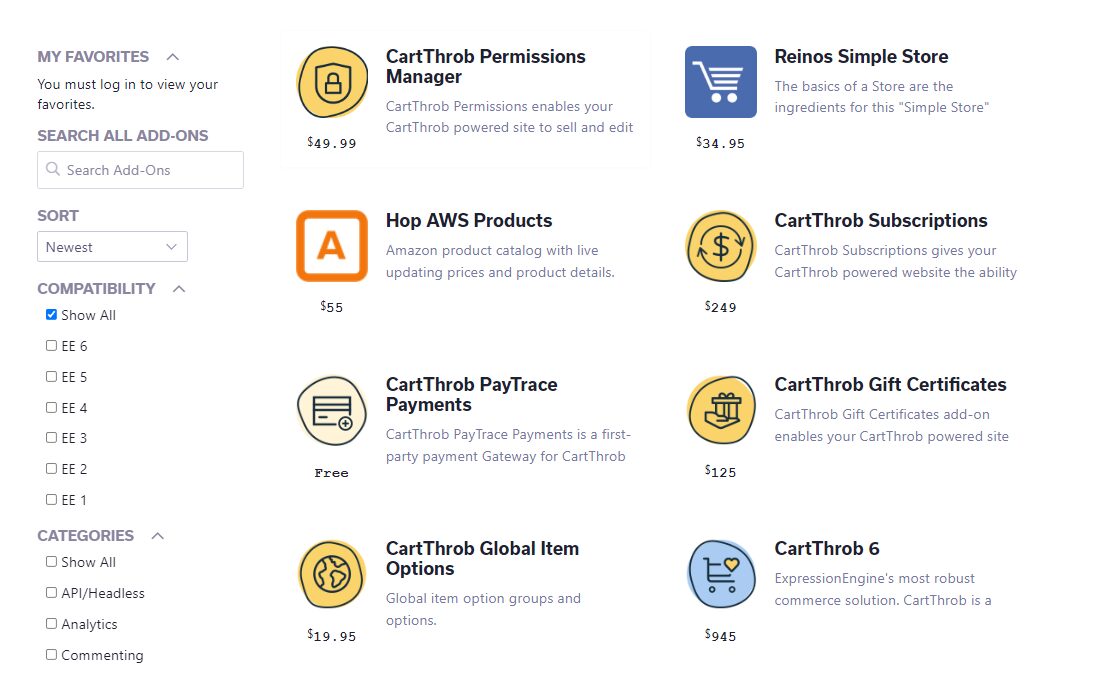
If you look outside of official add-ons, you’ll find that some ecommerce platforms can integrate with ExpressionEngine. Ecwid, for example, integrates with this platform and enables you to start selling products from your website:
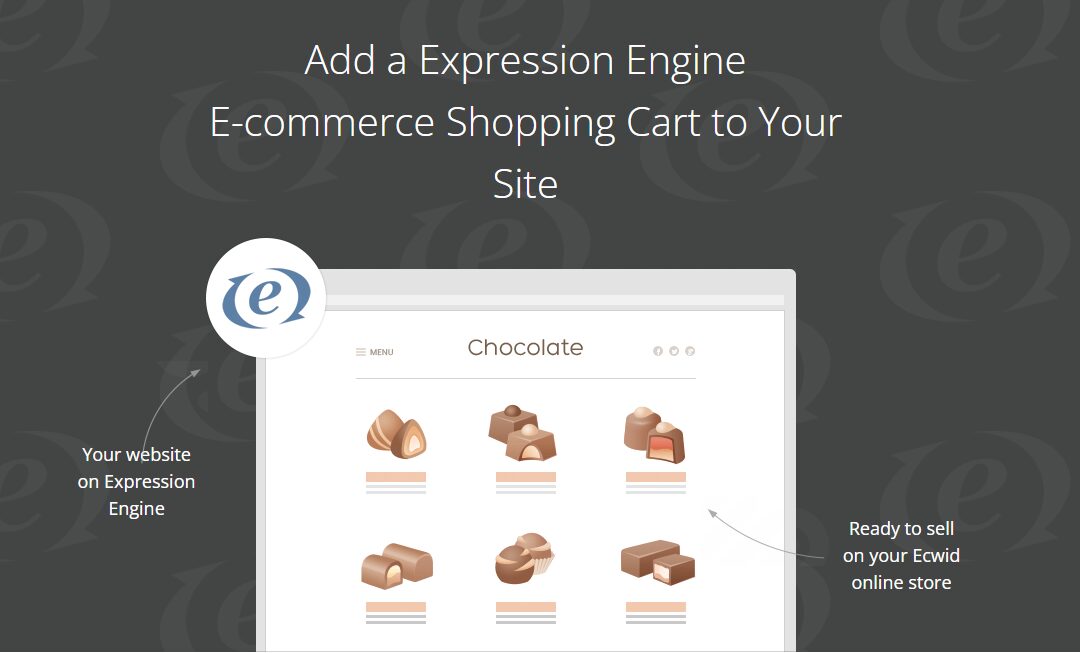
The downside of this integration is that it requires a monthly Ecwid subscription. However, that may be preferable to paying upfront for an expensive ecommerce add-on license.
Conclusion
No two CMSs share the same use cases, and that applies to WordPress and ExpressionEngine as well. Of the two, WordPress is the more user-friendly option, and it gives you a much greater degree of choice when it comes to customizing your site’s functionality and style.
On the other hand, ExpressionEngine is more geared towards developers. Out of the box, it includes several features that WordPress is missing, such as built-in SEO tools and the ability to create custom post types and fields. However, one big component that is missing from ExpressionEngine is theming. Unless you’re comfortable creating templates manually, you might be better off using WordPress and a flexible theme.
Do you have any questions about choosing between WordPress vs ExpressionEngine? Let’s talk about them in the comments section below!
The post WordPress vs ExpressionEngine appeared first on Elegant Themes Blog.
